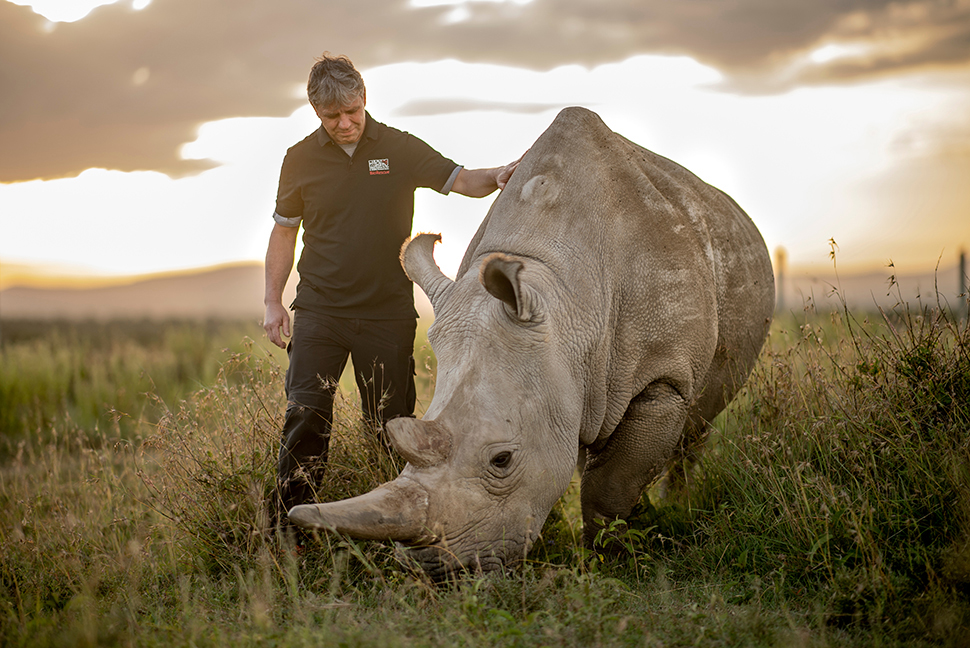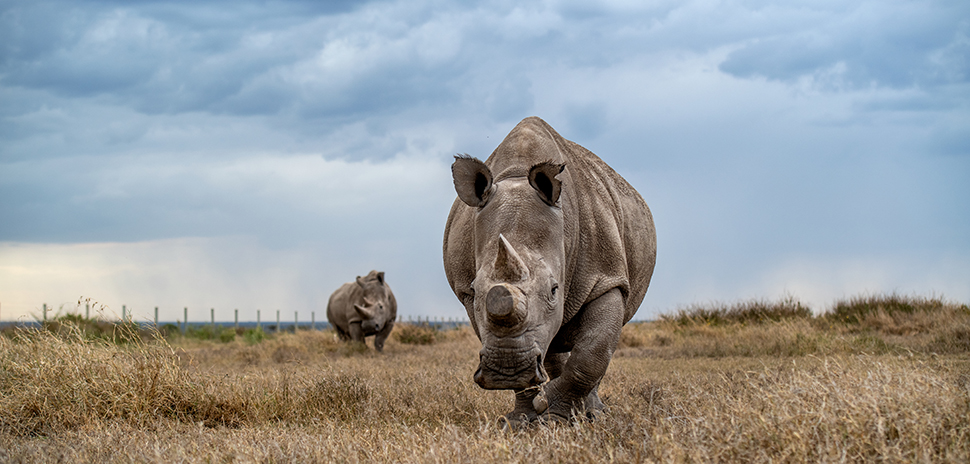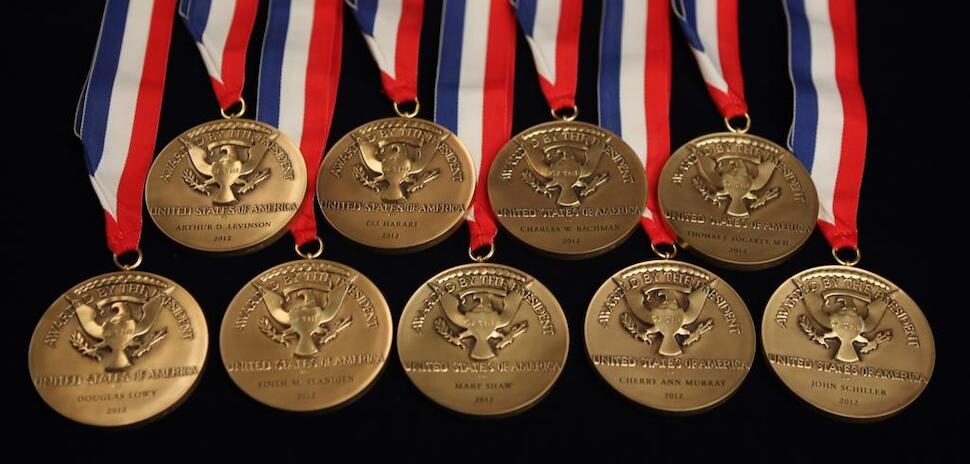Only two female northern white rhinos remain in the world, marking them as the most endangered mammals on the planet.
In a move that diversifies its de-extinction ambitions, Texas-based Colossal Biosciences, previously in headlines for its $75 million woolly mammoth revival project, has joined forces with BioRescue to save the white rhino species.
Together with Colossal, the global BioRescue group is working to save the northern white rhino from disappearing forever using special breeding methods and stem cell techniques.
The combined effort of Colossal and BioRescue involves unique breeding methods and stem cell techniques, aiming to provide the northern white rhino a chance at survival, according to Ben Lamm, the Dallas-based CEO and co-founder of Colossal,
Colossal is passionate about species preservation, Lamm says, and as part of its broader de-extinction work, the biotech leverages its science, techniques, and “toolkit” for conservation.
“We’re creating tools that will allow us to correct what has been lost and create ecosystems that will be sustainable for future generations,” said Lamm.
The plight of the northern white rhino is emblematic of larger threats facing numerous species and the need for conservation efforts, according to the CEO.
Breeding and stem cell science to save endangered animals
“We’re very honored to be BioRescue’s genetic rescue partner and have the opportunity to help save the northern white rhino, as well as other iconic keystone species from the brink of extinction,” Lamm said in a statement.
BioRescue, a team of international experts focused on saving endangered animals with help from their partners around the world, is contributing scientific and veterinary expertise to the rescue mission that will leverage Colossal’s advanced technologies in gene sequencing and engineering to develop a roadmap for the endangered species’ rescue.
The BioRescue project is a research consortium led by Leibniz Institute for Zoo and Wildlife Research. The BioRescue group, led by a German institute, includes members from the Czech Republic, Italy, Germany, and Japan.
Like Colossal, their goal is not just to save one species but many.
Beacon of hope for rhinos, others
The extreme situation of the northern white rhino presents an opportunity for researchers to apply and refine advanced reproductive and stem cell technologies.
“The northern white rhino is the world’s rarest, large mammal and thousands of species depend on it for existence,” Dr. Thomas Hildebrandt, project head at BioRescue and Colossal scientific advisory board member, said in a statement.
Hildebrandt says that with Colossal’s genetic technology, the team can piece together the missing links of the White Rhino’s genetic history.
“Following decades of assisted reproduction and stem cell innovations made by scientists and conservationists, I’m thrilled the partnership between Colossal and BioRescue will help accelerate and protect the northern white rhino from extinction,” he said.
Success with the northern white rhino can serve as a beacon of hope and a proof of concept for broader efforts.
Together, the companies said they will work on strategies in the fields of wildlife conservation research and wildlife veterinary medicine to optimize the development of sustainable wildlife populations with the goal of restoring the northern white rhino population within our lifetime.

Thomas Hildebrandt, leader of the BioRescue consortium walks with Najin, one of the last two northern white rhinos alive at Ol Pejeta Conservancy in Kenya. [Photo: by Ami Vitale]
White Rhinos: Functionally extinct in the wild
Colossal said the northern white rhino is considered to be functionally extinct in the wild as a direct result of human activity. The animals’ natural habitats included parts of Uganda, Chad, Sudan, the Central African Republic, and the Democratic Republic of Congo, Colossal said.
The only two living females are being cared for at Ol Pejeta Conservancy in Kenya and one has aged out of egg retrieval, the company said.
Hildebrandt and his team have been working to collect oocytes from Fatu, to “create 29 viable embryos that will one day be implanted in surrogate southern white rhinos.”
Enter Colossal, which will assist the rescue mission by using genetic engineering techniques to bring more genetic diversity to the embryos.
The company’s focus on the edits will be to improve genetic diversity in living cells and mitigate impacts of disease or lack of adaptability to the changing climate.
Hildebrandt has spent more than 20 years on a mission to save the northern white rhino species and has led the efforts with BioRescue to show how synthetic biology can be used in addition to the genetic rescue techniques already in place.

An international team of scientists, conservationists, and governments joined Biorescue and Colossal at Ol Pejeta Conservancy in Kenya in May 2023. 29 viable embryos were created using advanced assisted reproductive health technologies using the oocytes from Fatu and the frozen sperm from deceased male rhinos. [Photo: Ami Vitale]
Leveraging Dallas biotech Form Bio
Emerging as a groundbreaking spinoff from Colossal in 2022, Dallas-based Form Bio will play a role in the initiative.
In a population study, Colossal and the project teams aim to scrutinize the genetic diversity of the southern white rhino. One secret weapon in their arsenal is Form Bio’s comparative genomic tool. The spinoff company’s technology empowers researchers to juxtapose the DNA of their specimens with the existing northern white rhino population. The ultimate goal of the study is to spotlight the genetic variations that thrived before the species faced drastic decline.
Over time, Colossal said it will also provide specific sequencing and gene editing support.
Building on its sequencing discoveries, Colossal plans to use genetic editing to replenish the gene pool of the northern white rhino. By identifying lost sequences in preserved specimens, Colossal envisions restoring this missing diversity into cell lines, laying the foundation for the creation of northern white rhino embryos.
Colossal said it will also create a catalog of museum samples related to northern white rhinos, spanning bones, preserved organs, embryos, and dry skin. The aim? To extract invaluable ancient DNA. Following the collection, the team will delve deep, sequencing every viable sample to unravel the genetic tapestry of the species.
Urgent need to stop biodiversity loss
Colossal said that the rate at which species loss is occurring is significantly faster than the restoration efforts of current conservation efforts.
Between now and 2050, Colossal said that humanity will lose up to 50% of all biodiversity if nothing changes. Most of conservation efforts are focused on preserving land and ending poaching, but, with only two remaining female rhinos, the need for more advanced technologies to preserve species becomes apparent, Colossal said.
There is a need for new tools and technologies to stop the loss. Colossal said it is developing those tools to improve the capacity of the conservation ecosystem.
‘De-extinction is an engine of innovation’
Matt James, head of conservation and Colossal’s chief animal officer, says de-extinction is an “engine of innovation that leads to tools that are directly applicable to conservation.”
Together, he says, “with some of the leading people in their fields, we will successfully be able to address and remedy specific conservation problems—starting with the northern white rhino.”
Colossal said its partnership with BioRescue is the starting point for future modern conservation networks that will help improve international conservation and conservation research organizations.
Partnering to save at-risk species and bring back extinct ones
Colossal said its conservation toolkit is a set of resources it employs to help partner organizations preserve and save at-risk species.
The company uses its expertise preserving lost genetic diversity, developing new species, and creating the hardware necessary for species rebirth and restoration to improve current conservation efforts.
Colossal said it now will provide these services as the synthetic genomic arm of BioRescue.
Colossal has aligned with various partnerships in the traditional conservation space such as Vertebrate Genome Project, Elephants Havens Wildlife Foundation, and The University of Alaska Fairbanks to fund projects, contribute genetic rescue technologies, and help influence rewilding and reintroduction strategies.
Aiming for monumental discovery—and impact
In the realm of conservation and monumental discoveries, Colossal aims to live up to its name. Colossal said its advanced genetic technology and techniques are being used to help with these efforts from innovating a cure for a lethal elephant virus to unearthing mammoth secrets in its battle against extinction:
- Partnering with the Vertebrate Genome Project, Colossal is decoding the genomes of endangered elephants, paving the way for species preservation and even potential de-extinction.
- Teaming up with Dr. Paul Ling, Colossal is innovating treatments and vaccines for EEHV, a lethal virus threatening juvenile Asian elephants worldwide.
- In collaboration with Botswana’s sole elephant orphanage, Elephant Havens Wildlife Foundation, Colossal employs AI to study and reintegrate orphaned elephants into the wild.
- With The University of Alaska-Fairbanks, Colossal spearheads mammoth research. They’re aiding the radiocarbon dating of 1,500 mammoth relics; a significant leap considering less than 1% were genetically sequenced before.
“Humanity’s duty” to restore Earth to a healthier state
Launched in 2021, Colossal was founded by Lamm, an emerging technology and software entrepreneur, and world-renowned geneticist and serial biotech entrepreneur George Church, Ph.D.
It creates disruptive technologies for extinct species restoration, critically endangered species protection, and the repopulation of critical ecosystems that support the continuation of life on Earth.
The company says it sees—and accepts—”humanity’s duty” to restore Earth to a healthier state, while also solving for the future economies and biological necessities of the human condition through cutting-edge science and technologies.
![]()
Get on the list.
Dallas Innovates, every day.
Sign up to keep your eye on what’s new and next in Dallas-Fort Worth, every day.

































































